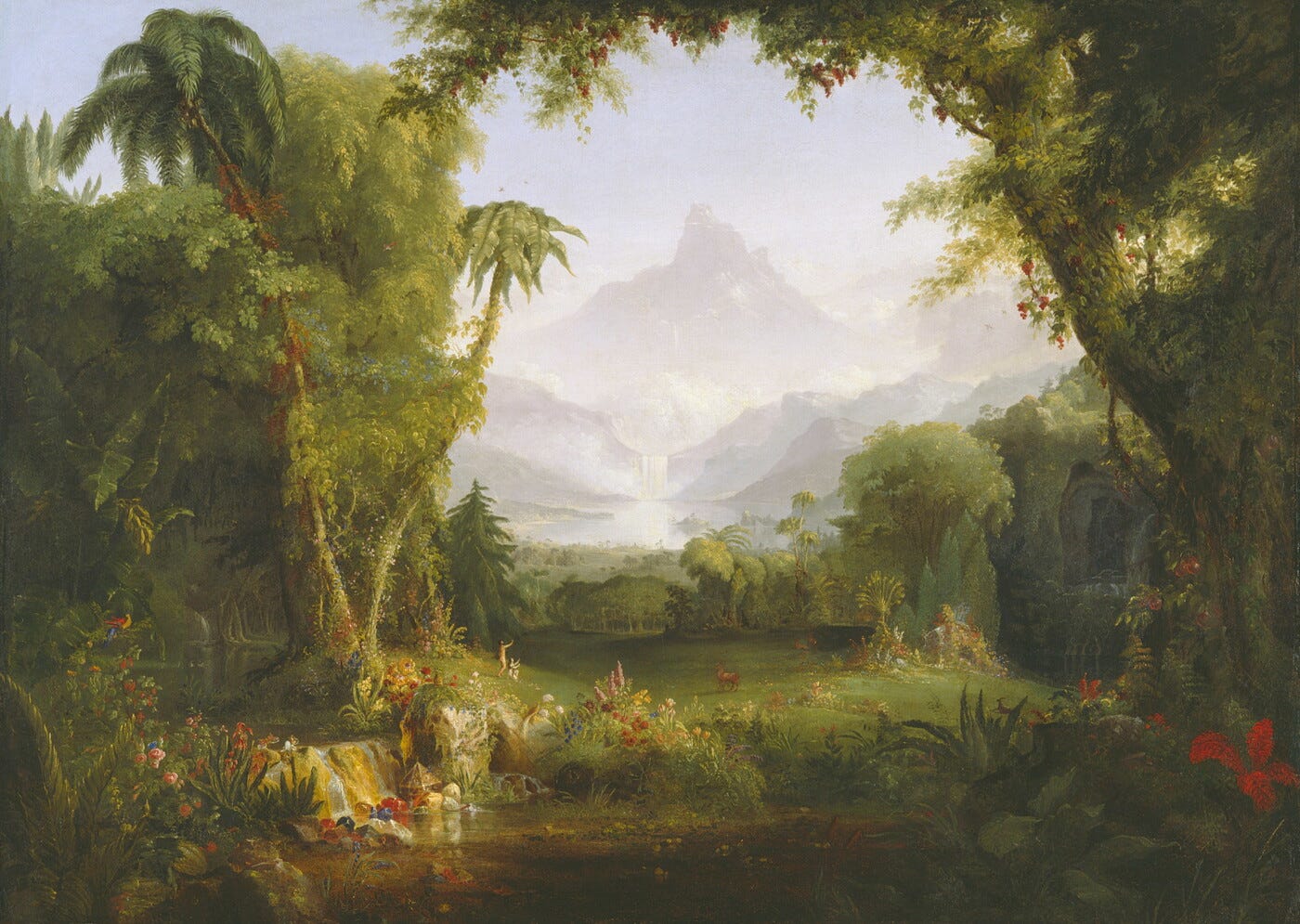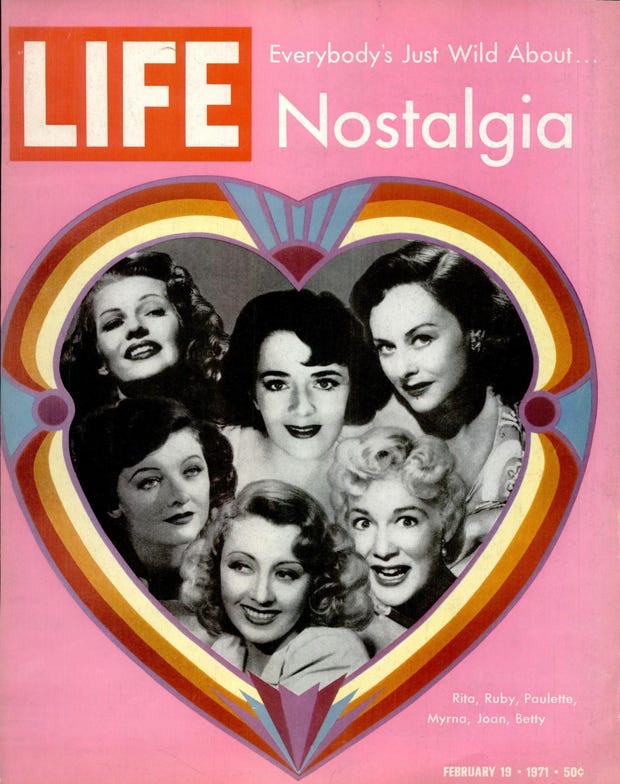An Edenic Fable, The Myth of Lost Authenticity
Why do we always feel like something has been lost? We always look backward and long for a time when things felt real. But was there ever a golden age of authenticity?
In The Authenticity Industries, this longing is framed as an Edenic fable—the idea that we once lived in a state of wholeness, only to be separated from it by industrialization, capitalism, and modernity. The pursuit of authenticity, then, becomes an attempt to return to that lost paradise.
But what if Eden was never real to begin with? And if authenticity is always about nostalgia, can we ever move forward?
The Garden of Eden: Thomas Cole (1801-1848)
Truth 1: The Myth of an Authentic Past
The modern obsession with authenticity is, at its core, a longing for something we believe we have lost. Whether it’s the simplicity of pre-industrial life, the “realness” of analog culture, or the purity of untouched landscapes, we chase an ideal that is always just out of reach.
In The Authenticity Industries, this is framed as a kind of Edenic loss, the idea that once, there was a time when people lived in harmony, untainted by capitalism, urbanization, and industrialization. Today, we look back at these supposed golden ages with nostalgia, believing they held the answers to our alienation.
But did they ever really exist?
The Arts and Crafts movement of the late 19th century romanticized pre-industrial craftsmanship, even though artisans of that era suffered under rigid guild systems and economic precarity.
Mid-century nostalgia for "simpler times" often ignores the fact that those decades were riddled with racial and gender inequalities.
The rise of "ancestral health" movements—think paleo diets and barefoot running—treats early human life as ideal, despite high mortality rates and lack of medical advancements.
We construct an imagined past to contrast with the complexities of the present. But if we are constantly trying to return to Eden, we ignore the ways in which our longing is just that—a longing, not a historical reality.
Answer 1: The Reinvention of Eden, Why the Future is the New Past
If authenticity is always tied to an imagined past, the smartest cultural movements aren’t about going back—they’re about reconstructing Eden for the present. Rather than searching for a lost world, people are building new interpretations of authenticity in ways that reflect modern needs.
Consider:
Regenerative Agriculture: Instead of simply idolizing old farming methods, regenerative farming movements are blending ancestral knowledge with scientific advancements to create a sustainable food future.
Tech-Free Retreats: Digital detox getaways sell an Edenic fantasy of escape, but they also recognize contemporary anxieties, offering controlled, temporary disconnection rather than outright rejection of modernity.
Slow Living & Neo-Artisan Craft: Brands like TOAST and Brutalist furniture makers invoke old-world craftsmanship, but they operate in a way that aligns with 21st-century consumers, small-batch, locally made, and marketed through Instagram.
These movements reveal that authenticity isn’t really about the past at all—it’s about the future we want to create. Instead of recovering lost authenticity, we are constantly reinventing it for new social, economic, and technological conditions.






